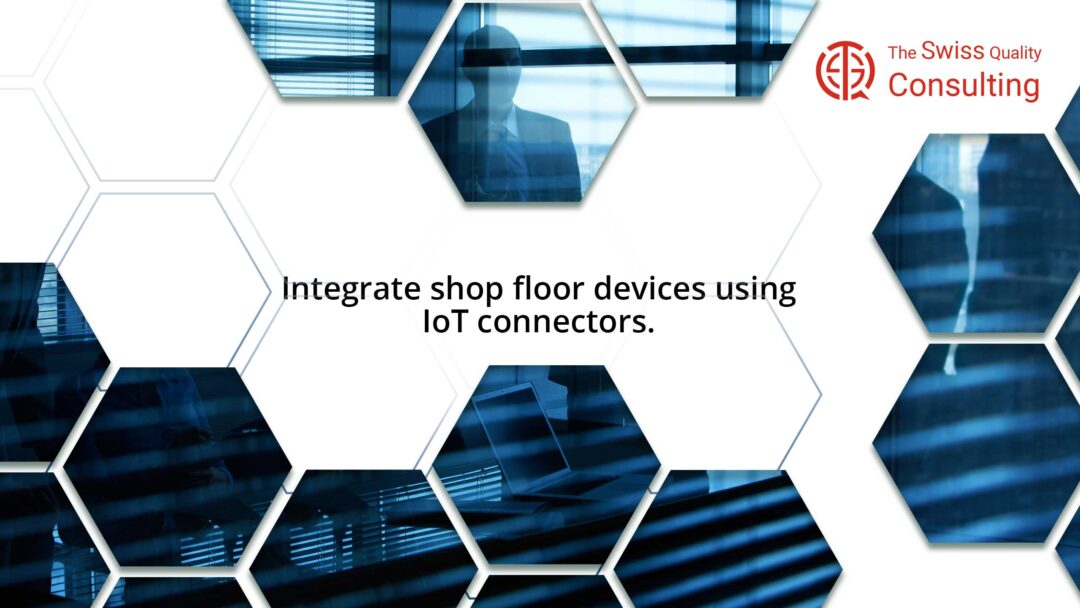Revolutionizing Industrial Operations through IoT Technology
Introduction
In today’s rapidly advancing industrial landscape, integrating shop floor devices with IoT connectors is becoming increasingly crucial for enhancing manufacturing efficiency and productivity. This article is designed for business executives, mid-level managers, and entrepreneurs who are exploring the integration of IoT technology in their manufacturing processes.
The Significance of IoT in Modern Manufacturing
In today’s manufacturing landscape, the Internet of Things (IoT) is revolutionizing the way shop floor devices communicate and operate, ushering in an era of unprecedented connectivity, automation, and data-driven insights. By seamlessly integrating IoT connectors into their existing infrastructure, manufacturers can harness the transformative power of the IoT to automate mundane tasks, optimize equipment performance, and gain real-time visibility into their production processes.
IoT connectors serve as the bridge between the physical world of shop floor machinery and the digital realm of data analytics, enabling manufacturers to collect and analyze vast amounts of data from sensors, actuators, and other connected devices. This real-time data stream provides a comprehensive view of production operations, empowering manufacturers to make informed decisions that can optimize resource utilization, minimize downtime, and enhance overall efficiency.
The applications of IoT in manufacturing extend far beyond mere data collection. IoT-enabled automation empowers manufacturers to streamline repetitive tasks, reduce human error, and optimize production processes. Predictive maintenance capabilities, fueled by IoT data analytics, enable manufacturers to proactively identify potential equipment failures, preventing costly downtime and ensuring the seamless flow of production.
Moreover, IoT-driven quality control systems can monitor product quality in real-time, detecting defects early in the production process and preventing the release of substandard products. This proactive approach to quality control minimizes waste, enhances product reputation, and safeguards customer satisfaction.
The benefits of embracing IoT in manufacturing are manifold, leading to:
Improved operational efficiency: IoT automation streamlines processes, reduces manual intervention, and optimizes resource allocation, leading to significant gains in production efficiency.
Reduced operational costs: IoT-driven predictive maintenance and quality control minimize downtime, prevent defects, and reduce the need for costly repairs, lowering overall operational costs.
Enhanced productivity and output: IoT-enabled optimization of production processes and equipment performance leads to increased productivity, higher output, and improved capacity utilization.
Data-driven decision-making: Real-time IoT data provides manufacturers with actionable insights, enabling informed decisions that optimize production, reduce costs, and enhance product quality.
Improved safety and compliance: IoT-enabled safety monitoring systems can detect and alert to potential hazards, reducing workplace accidents and ensuring compliance with safety regulations.
New business models and revenue streams: IoT-generated data can be monetized through data-as-a-service (DaaS) models, opening up new revenue streams and business opportunities.
In essence, the IoT is not merely a technological advancement; it is a transformative force that is revolutionizing the manufacturing industry. By embracing the IoT, manufacturers can unlock unprecedented levels of efficiency, productivity, and innovation, positioning themselves for sustainable growth and success in the ever-evolving digital era of manufacturing.
Streamlining Operations and Data Analysis
Utilizing IoT connectors enables seamless communication between devices, offering real-time data analysis and streamlined operations for better decision-making and operational control.
Role in Change Management
Implementing IoT connectors on the shop floor is a significant aspect of change management in manufacturing. It involves adopting new technologies and redefining processes to stay ahead in a technology-driven industrial environment.
Embracing Technological Evolution in Manufacturing
Adopting IoT technology requires businesses to navigate through the challenges of digital transformation, ensuring that their manufacturing processes are aligned with the latest technological advancements.
Impact on Executive Coaching and Leadership
Leadership plays a critical role in the successful implementation of IoT technology in manufacturing. Executive coaching services are increasingly focusing on empowering leaders with the skills to drive technological integration and manage digital transformation.
Guiding Technological Innovation and Implementation
Through executive coaching, leaders are equipped with the necessary skills to understand IoT technology, manage its integration, and leverage its benefits for enhanced manufacturing outcomes.
Effective Communication in IoT Integration
Effective communication is essential for the successful integration of IoT connectors in manufacturing. Clearly conveying the benefits, processes, and changes to all stakeholders ensures smooth implementation and adoption.
Building a Culture of Technological Adaptability
Communicating the strategic vision behind IoT integration fosters a culture of innovation and adaptability, encouraging teams to embrace and effectively utilize new technologies.
Generative AI in Complementing IoT Technology
Generative Artificial Intelligence (AI) complements IoT technology in manufacturing. AI algorithms can process the data collected by IoT devices, providing predictive maintenance insights and optimizing manufacturing processes.
Advancing Manufacturing Intelligence with AI and IoT
The synergy of generative AI and IoT technology offers a robust solution for manufacturers, enabling smarter, more efficient, and proactive manufacturing operations.
Conclusion Integrating Shop Floor Devices with IoT Connectors
In conclusion, integrating shop floor devices with IoT connectors is a strategic move for manufacturers aiming to enhance efficiency, productivity, and data-driven decision-making. By embracing IoT and AI technologies, manufacturing businesses can achieve greater operational excellence and maintain a competitive edge in the dynamic industrial sector.
#IoTManufacturing, #IndustrialIoT, #SmartManufacturing, #DigitalTransformation, #TechInnovation

